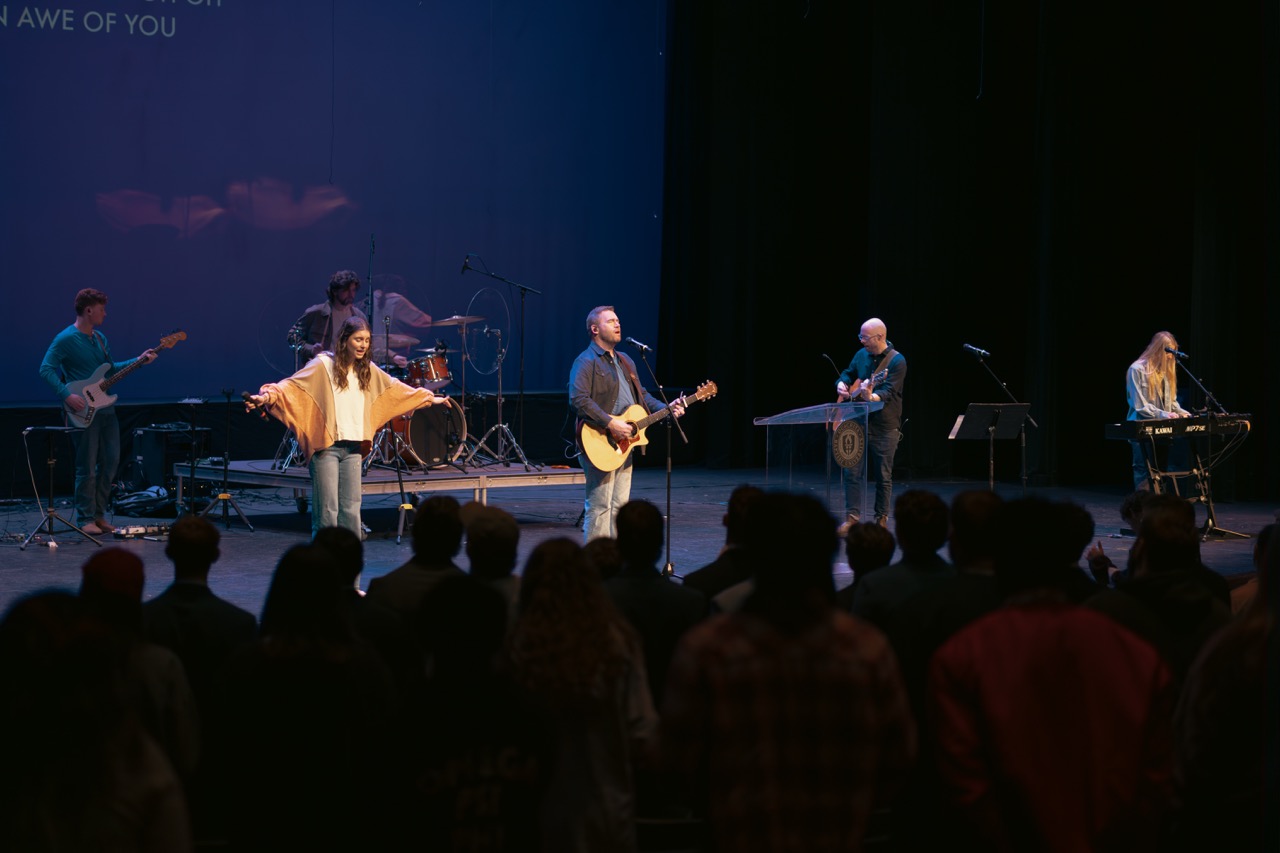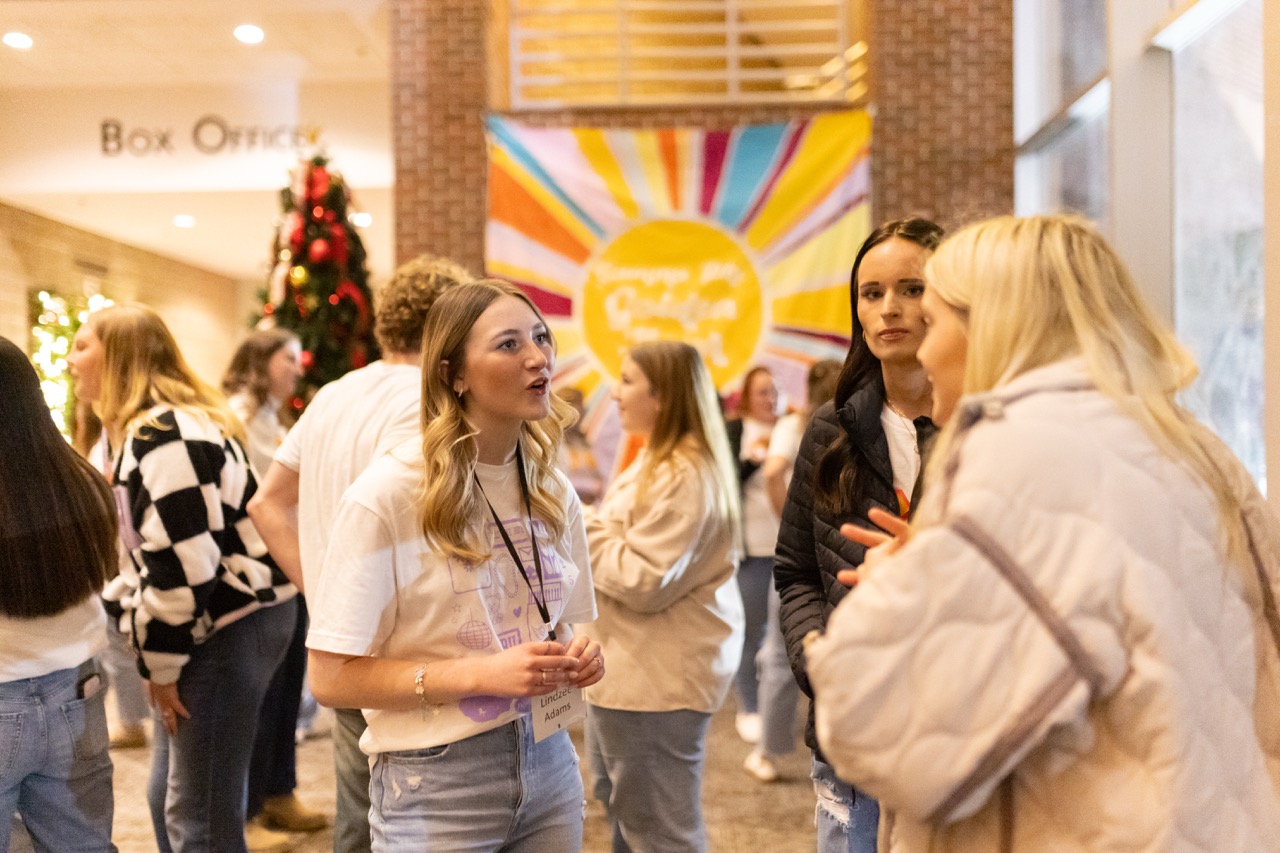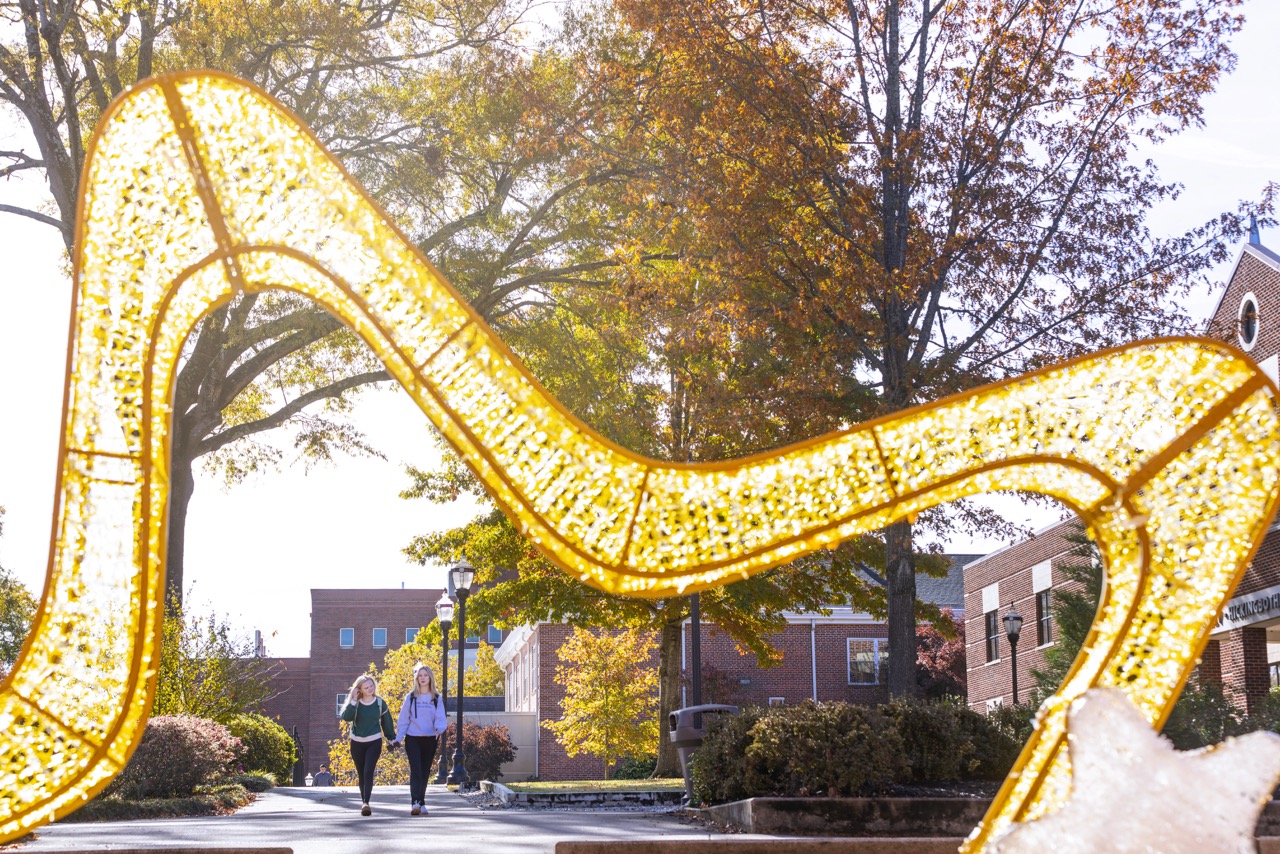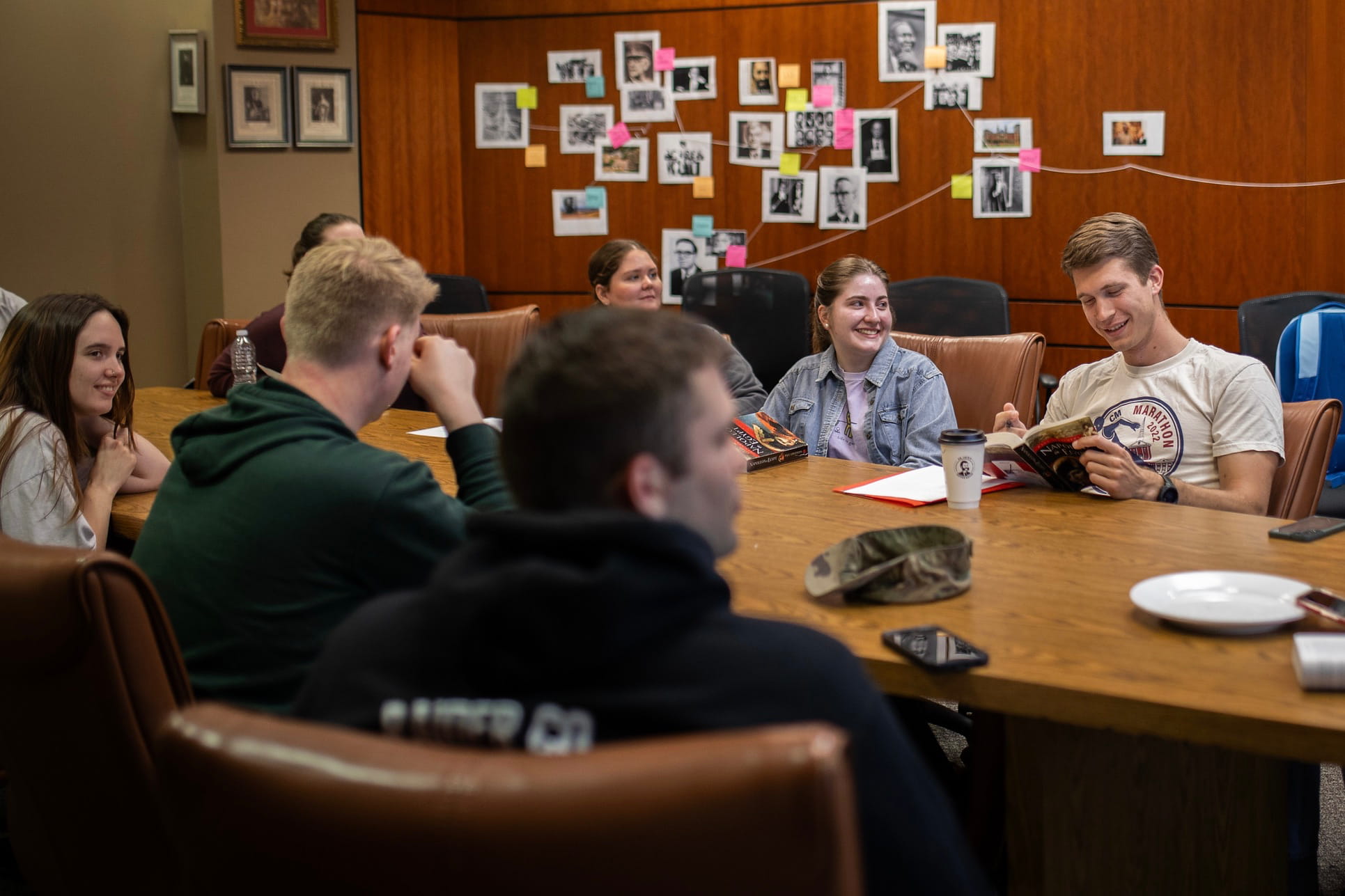Intellectual and spiritual growth
2019 Convocation Chapel
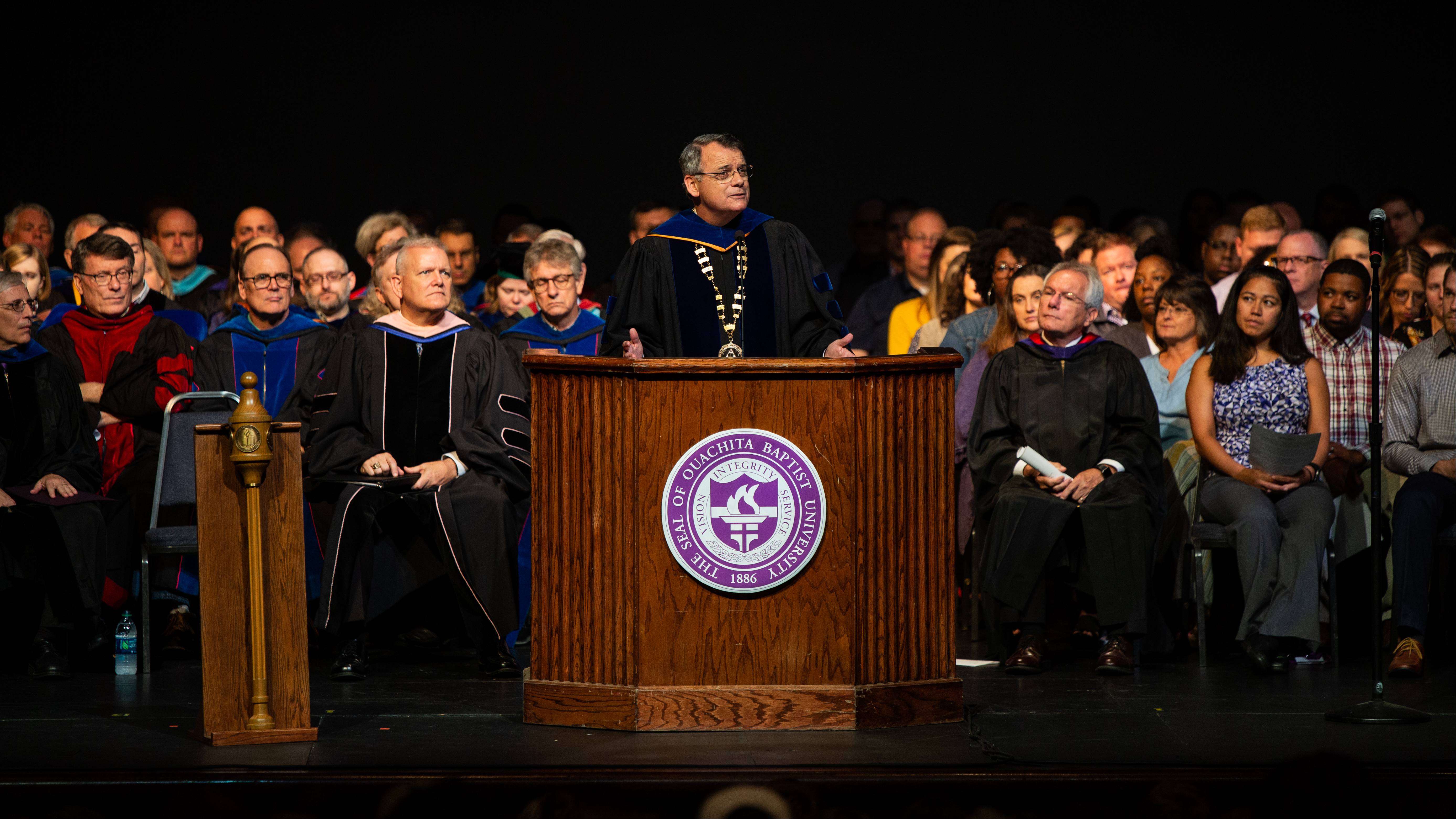 September 03, 2019
- Ben R. Sells
September 03, 2019
- Ben R. SellsGood morning, and welcome to this 2019-20 academic year. I hope you had a wonderful
summer, and I also hope you’re excited to be on campus. At Ouachita, we have fun and
don’t take ourselves too seriously. But we’re serious about intellectual and spiritual
growth, and I want to spend a few moments introducing this year’s theme.
Loving God with our minds
Earlier this month, songwriter Marty Sampson, well-known in contemporary Christian
music for his work with Hillsong, stated that he was walking away from his Christian
faith. He shared several examples of his theological struggles and each time concluded
with the phrase, “no one talks about it.”
I think he means that no one talks about the difficult issues of being a human and
a Christian. How might we respond? We pray that the Lord would help him in his unbelief.
Some have also responded by respectfully pushing back on his opinion that, “no one
talks about it.”
For more than 2,000 years, intelligent and thoughtful Christian people have studied,
thought, wrote, and talked about what it means to be a person of Christian faith in
a complex world. They’ve written millions of words on difficult issues, cultural challenges,
and the evil within and around us. People have “talked about it” because we have minds
that can reason and think. Sampson isn’t the first person to say, “Hey, what about
this?” And, he won’t be the last.
Our faith teaches us that the mind is important because it’s one of the ways we can
come to love God. Indeed, Jesus’ great commandment is: “you shall love the Lord your
God with all your heart and with all your soul and with all your strength and with
all your mind.”
God gave us minds that have the ability to “talk about it,” to think deeply and honestly
about what it means to believe, and why such belief matters in a world that hungers
for love and justice. From the beginning of Christianity, we’ve been encouraged not
to let our minds remain parked in neutral, but to actively develop and shape our minds
so we can see the world as God sees it, and be engaged in extending His kingdom on
this earth.
The writer of Romans 12:2 reminds us that we can be “transformed by the renewing of
your mind, that you may prove what is that good and acceptable perfect will of God.”
Christians have thought it so important to love the Lord with our minds, and then
transform our minds to His will, that they started educational institutions. Universities
like Ouachita are part of a long Christian tradition of studying, thinking, writing,
and “talking about it.”
We study the Bible and the created world
At Ouachita, we call this “intellectual growth.” Intellectual growth, rightly pursued,
cannot be separated from spiritual growth. To help us love Him with our minds, the
God of the universe gave us two significant resources: the Bible, and the created
world. Christians study both.
At Ouachita, we believe the Bible is God’s word, and that it speaks correctly and
divinely to all people in all times and cultures. We believe the Bible is true and
an authoritative guide for our lives. In the words of the Book of Common Prayer: “We
believe that through the Holy Spirit, God’s word can be written in our hearts to our
everlasting comfort, to reform us, to renew us according to God’s own image, to build
us up and edify us in the perfect dwelling place for Christ himself.” It's why we have a School of Christian Studies, require two Bible courses, and offer
many opportunities to engage scripture.
At Ouachita, we also believe that God created the world for us to live in, to study
and understand, to care for, and to be actively engaged in making it better. We study
the world in all of its dimensions, those created by God and by people – the social,
the natural, the physical, the invisible, the manufactured, and more.
We’re not fearful about studying the created world. We might learn things that are
difficult to understand, but ultimately we won’t learn anything that contradicts or
diminishes our belief in and our commitment to God. Just the opposite – the truths
we discover, when rightly understood, will provide more evidence for our Christian
faith.
The world we study is complex, and its people and problems are complex. As people
of Christian faith, we understand that the world is broken because of sin. The good
news is that God sent Jesus to redeem us, and the world we inhabit. He involves us
in that ongoing work of redemption.
The importance of the liberal arts
To help solve complex problems, we need intellectual growth that is broad. It’s why
we have a CORE curriculum that invites you to have a comprehensive understanding of
the world. Our faculty, drawing on the wisdom of others, developed a broad set of
courses.
To help you flourish as a human, and as a contributing member of society, and as a
Christian, the CORE’s educational goal is to help you excel at communicating with
people, analyzing information, applying critical thinking and reasoning skills, engaging
in society, learning from people who are different from you, appreciating creativity,
caring for yourself, and more. This is the essence of being a Christian liberal arts
university.
Ouachita draws upon a two-thousand-year-old Christian tradition of exploring and knowing
and thinking about this world, of learning what it means to be a created being on
a created planet, and being able to “talk about it.”
Sure, we want to prepare you for the kind of work that specifically interests you,
but you’ll have many jobs over your lifetime, technology will change your jobs, some
jobs will disappear, and others are yet to be created. At Ouachita we believe the
liberal arts is the best way to broadly prepare you for your first job after graduation
and all the ones that follow.
“Being smart” and spiritual growth
Smart people fill this room. Behind me are faculty who are incredibly smart in the
sciences, business, humanities, education, social sciences, fine arts, and education.
Before me is a student body made up of smart individuals. You’re smart academically,
athletically, how you engage people, lead others, and in a host of ways.
We believe you can become smarter, and that you need to be smarter to live and work
effectively. As we begin a new academic year, you’re stepping into the Christian liberal
arts tradition that also places “being smarter” in the realm of spiritual growth as
well as intellectual growth.
Who do you think is the smartest person who ever lived? Have you ever considered that
it’s Jesus Christ?
Dallas Willard in his book “The Divine Conspiracy,” notes that Jesus, who is fully
human and fully God, was by design the most intelligent, perceptive, and brilliant
person who ever lived.
Willard writes, “At the molecular level, He knew how to make water into wine. He knew
how take a few pieces of bread and feed thousands of people. He knew how to transform
the tissues of the human body from sickness to health. He knew how to suspend gravity,
interrupt weather patterns, and by a word eliminate unfruitful trees.”
Jesus was an outstanding student of ethics and a master teacher. He too had studied
the Bible and the world. Whether He engaged religious or secular people, He was wise
and winsome. He was brilliant, but frequently misunderstood and suffered wrong. He
was the best but also the humblest. He was an unparalleled leader, yet He lived to
serve and sacrifice.
The faculty who are teaching you, and the staff and coaches who are working with you,
are smart people. From your books and other resources, you’ll learn from smart people.
But none was as smart as Jesus.
So consider this line of thinking: If Jesus was the smartest person who ever lived,
and the Bible tells us that He grew in wisdom and stature, and if being a person of
Christian faith means developing Christ-like qualities, then becoming smarter should
not be isolated from becoming more spiritual. For Christians, they are deeply connected.
Becoming smarter is certainly intellectual growth, but it’s also spiritual growth.
Conclusion
Intellectual growth. Spiritual growth.
Each year we select a theme, taken from our mission statement, to help us focus on
the purpose of the Ouachita education and experience.
This year it’s “intellectual and spiritual growth.” To help remind us, the theme is
on a patch and given to students, faculty, and staff. It’s already on my backpack;
you can take a patch as you leave.
During your time at Ouachita, we want you to grow purposely towards the person God
made you to be. In all of history, there’s never been and never will be someone just
like you. Arkansas Baptists founded Ouachita to be a place where students come, during
a formative time in their lives, and live together in community to “talk about it.”
Each of you have so much God-given promise and potential. It’s going to be a great
year!
Allow me to close with this prayer: “Almighty God, by your gift alone we come to wisdom
and true understanding. Look with favor upon this University – that knowledge may
be increased among us, and wholesome learning flourish and abound. Bless those who
teach and those who learn; and grant that, in humility of heart, they may ever look
to you, the fountain of all wisdom, through Jesus Christ our Lord. Amen.”
By Ouachita Baptist University President Ben. R. Sells, PhD
References:
- Luke 10:27, The Bible – English Standard Version, Good News Publishers, 2016.
- Romans 12:2, The Bible – New King James Version, Thomas Nelson, 1982.
- The Book of Common Prayer. 1979. Church Hymnal Corporation, New York.
- Willard, Dallas. The Divine Conspiracy: Rediscovering Our Hidden Life in God. HarperCollins Publishers Inc., New York, 1998.
- The Book of Common Prayer. 1979. Church Hymnal Corporation, New York.
You Also Might Like
Recent
Ouachita reports Spring '26 enrollment, led by 50% increase in graduate students
February 11, 2026
